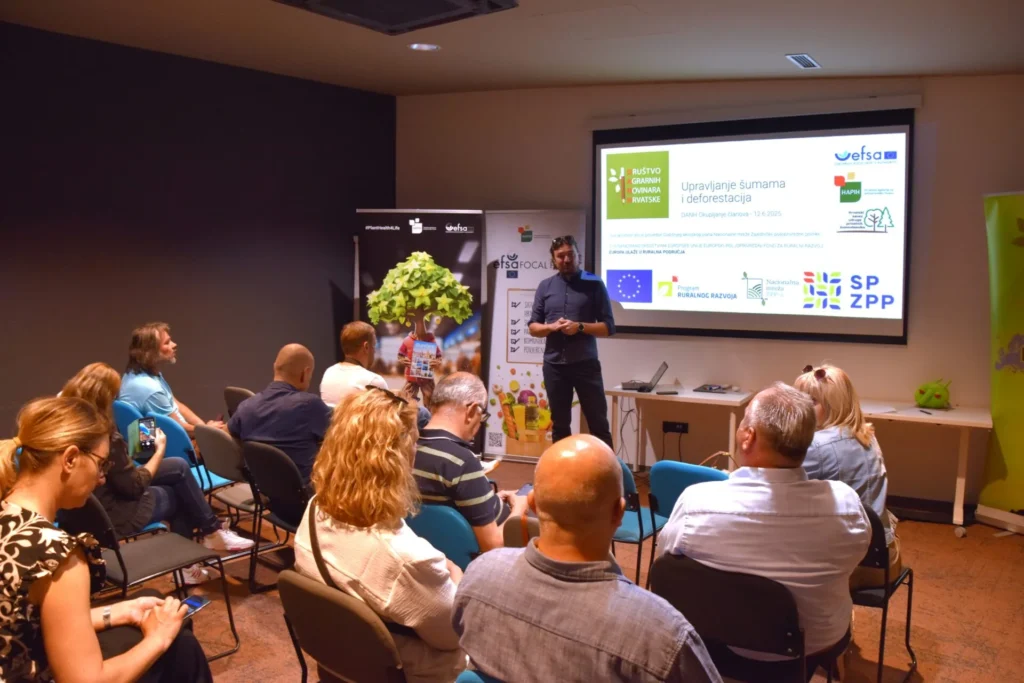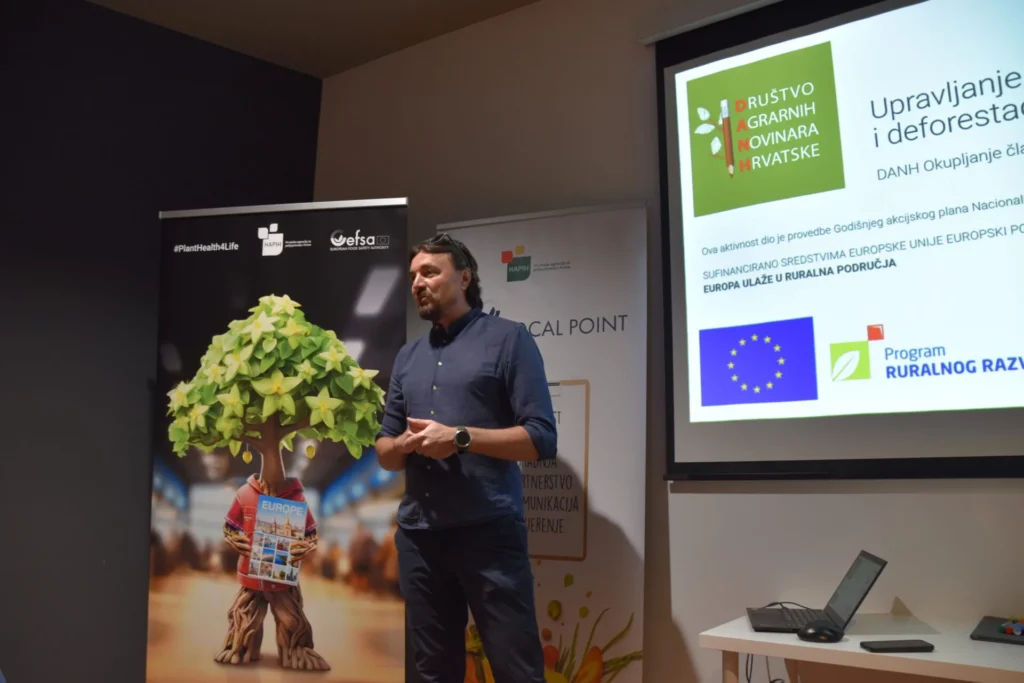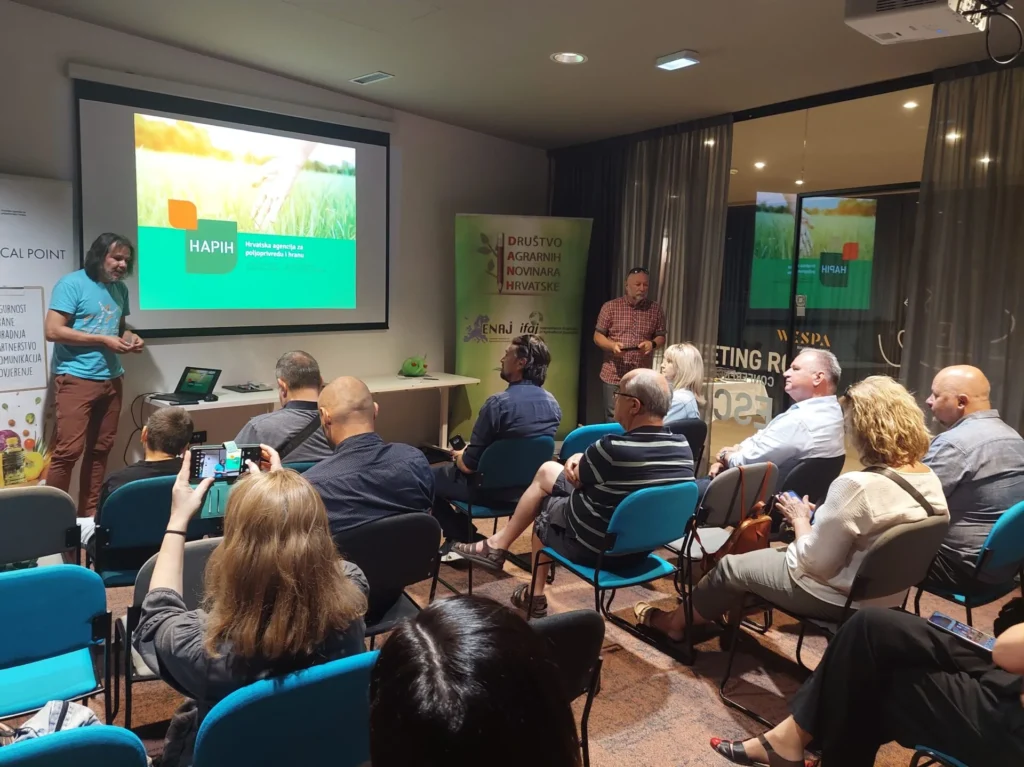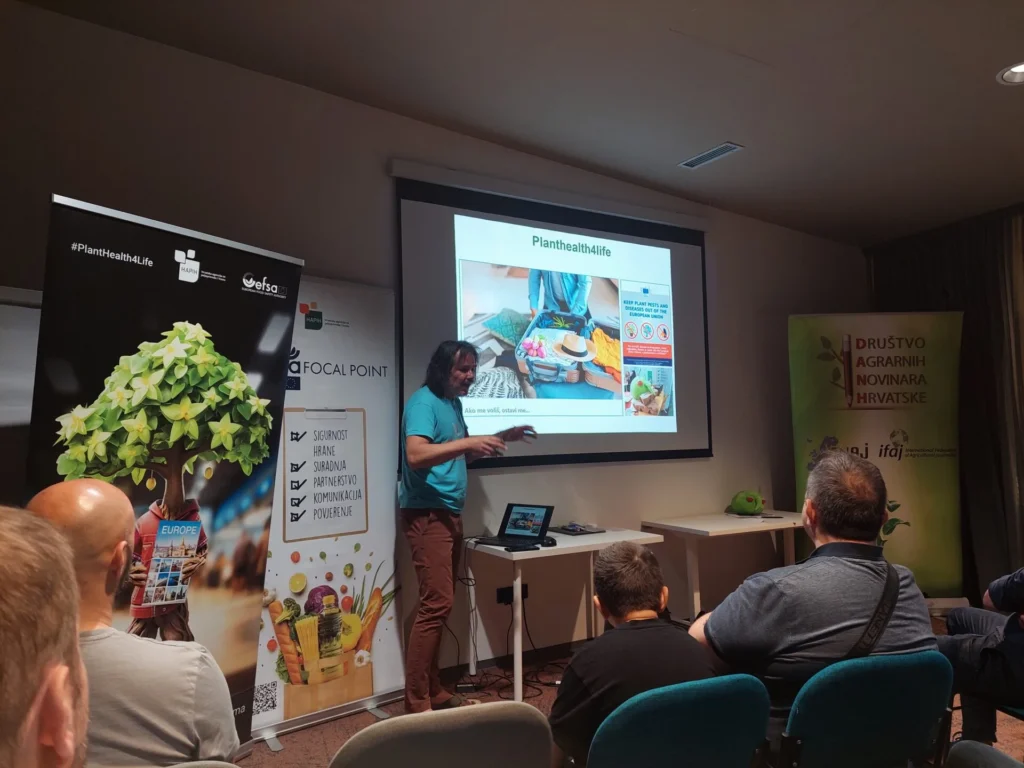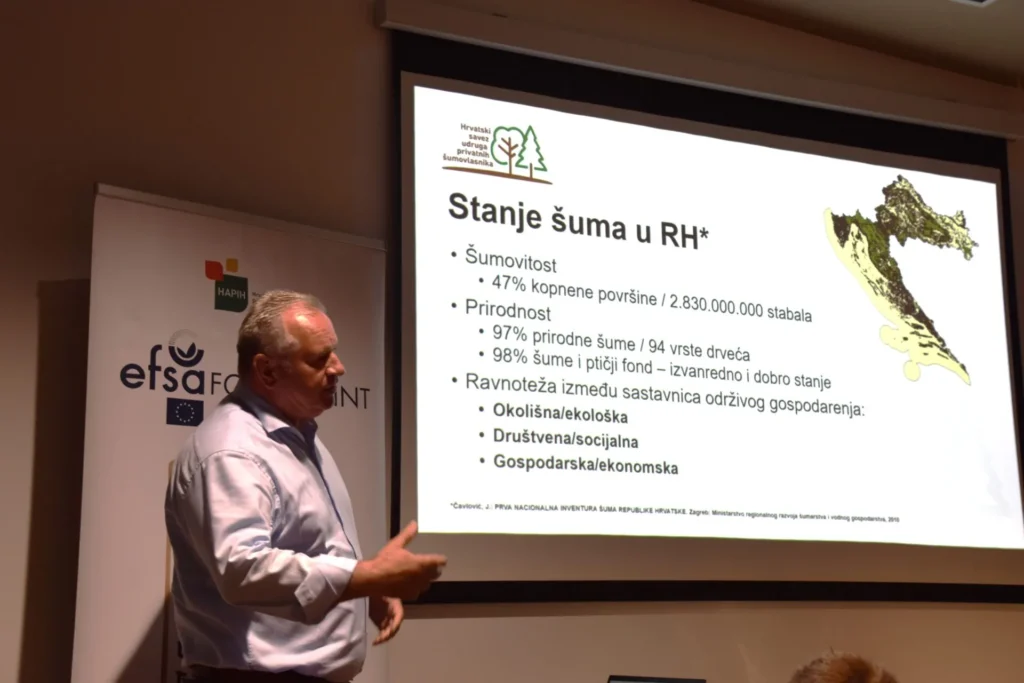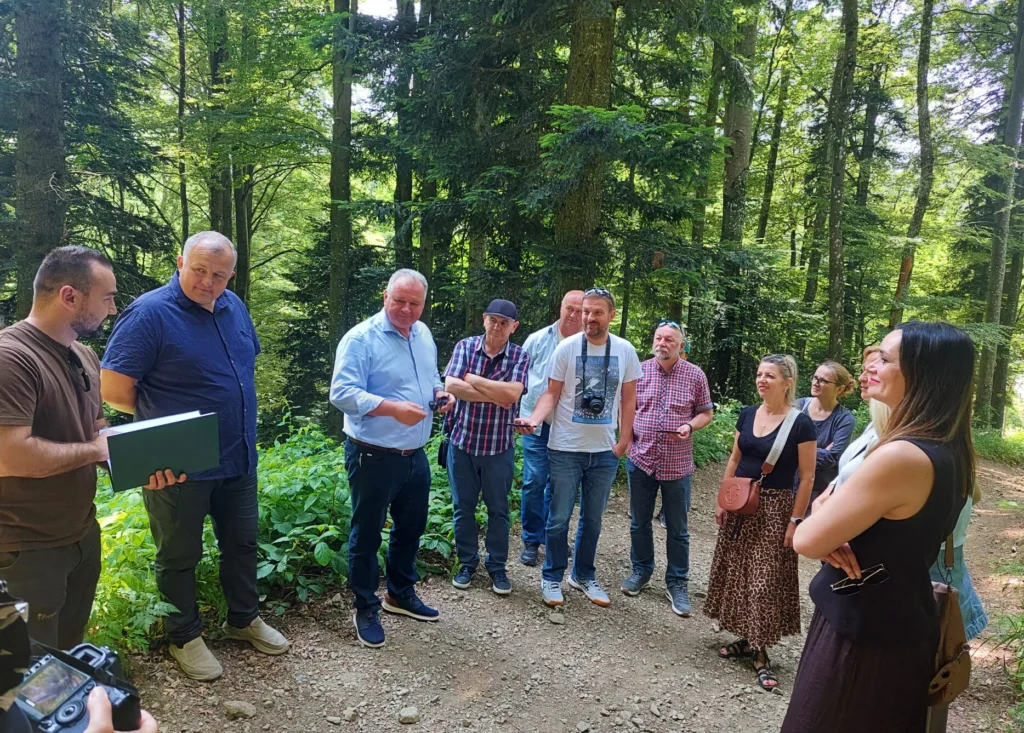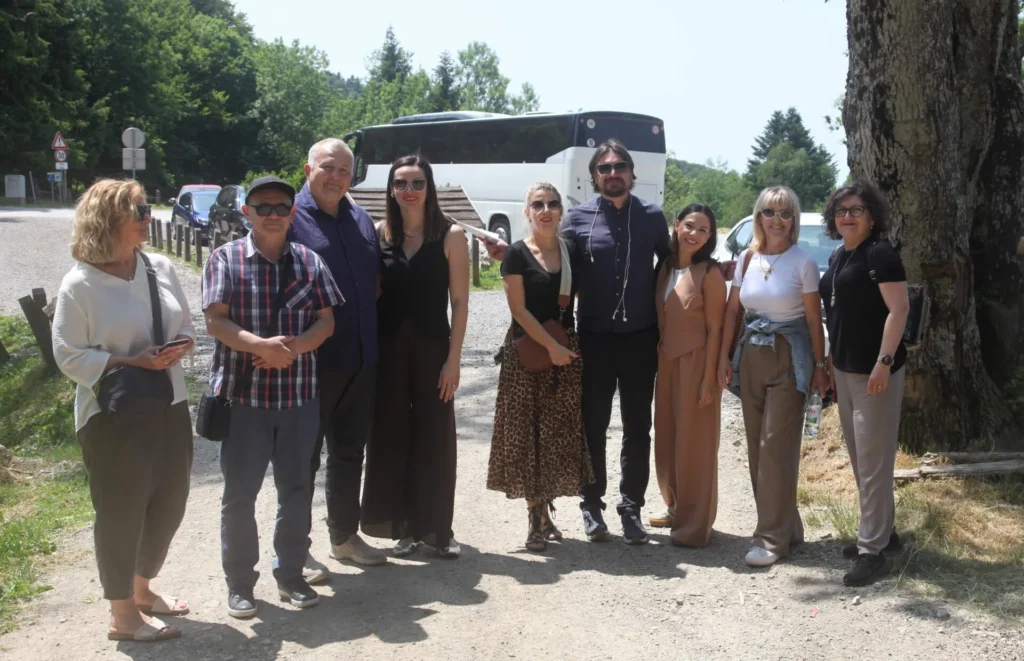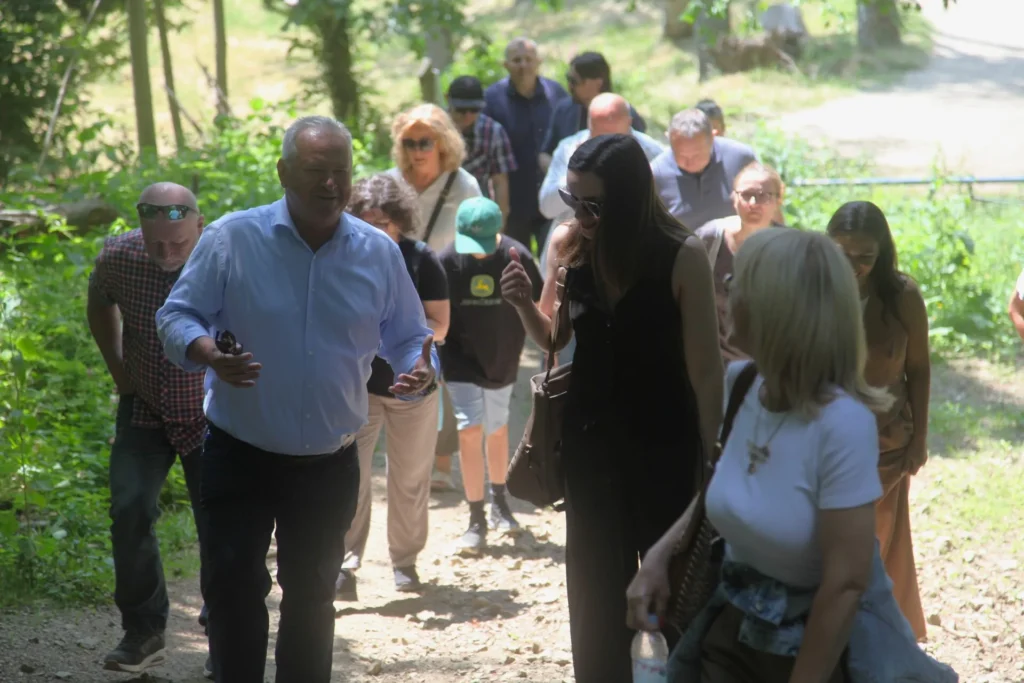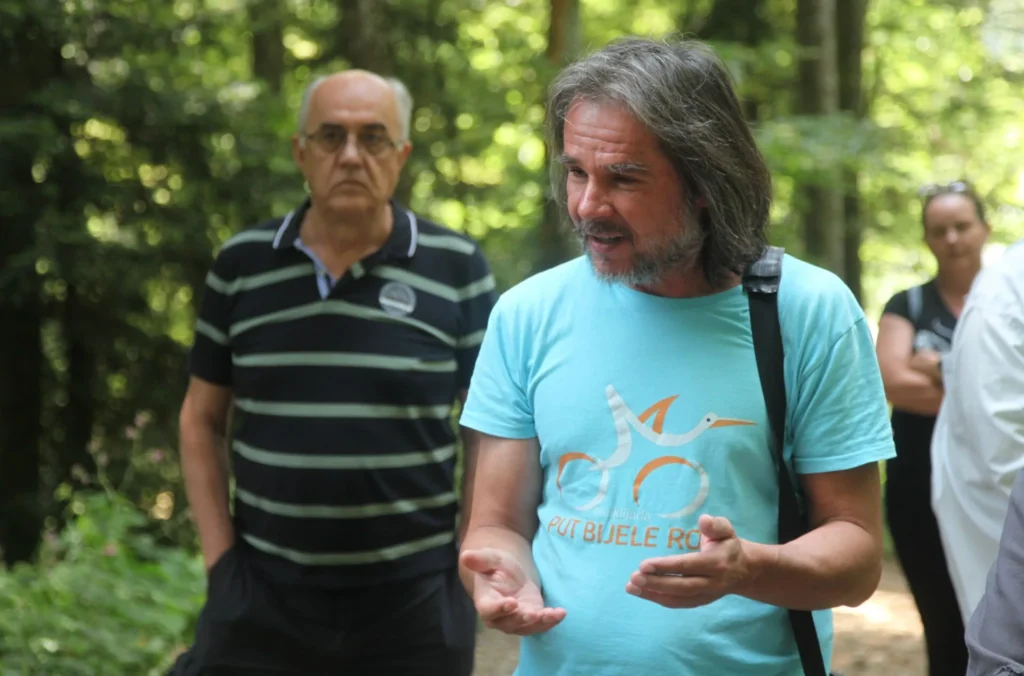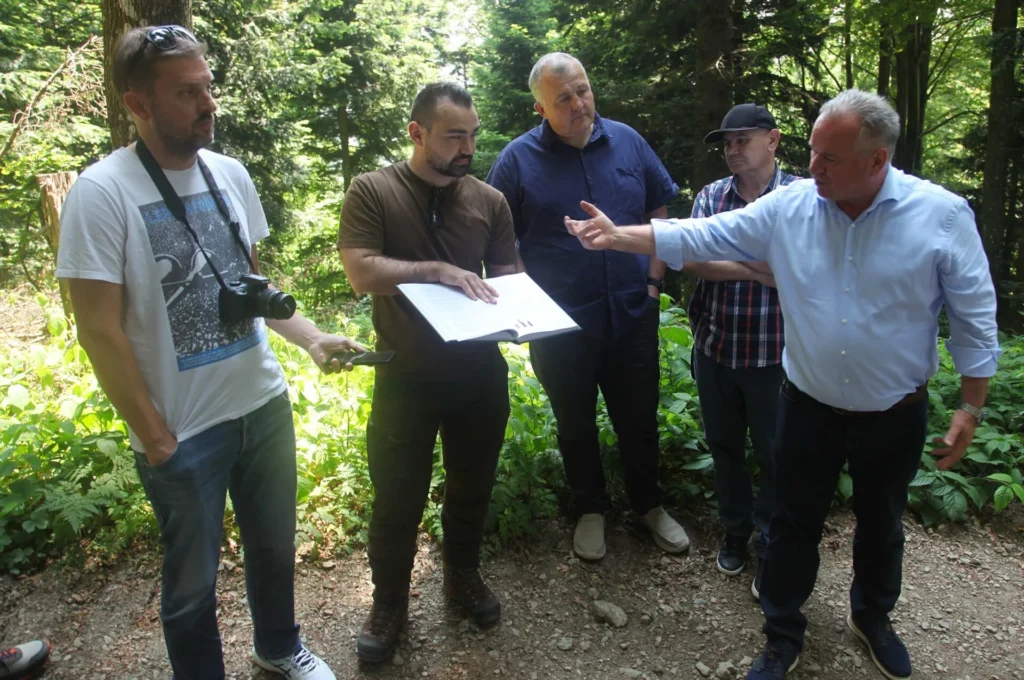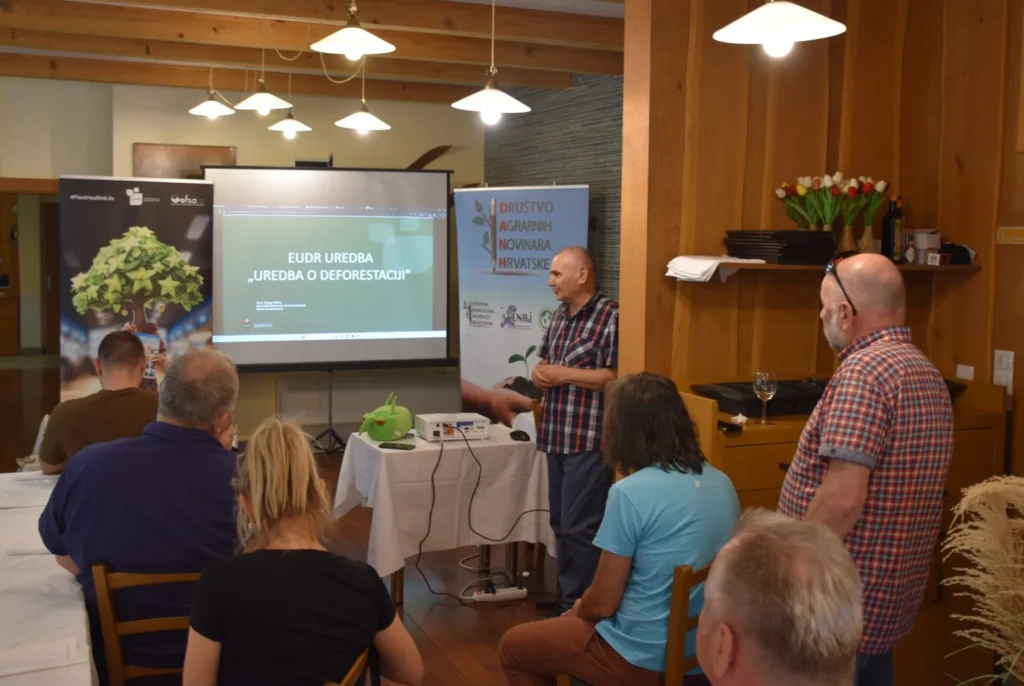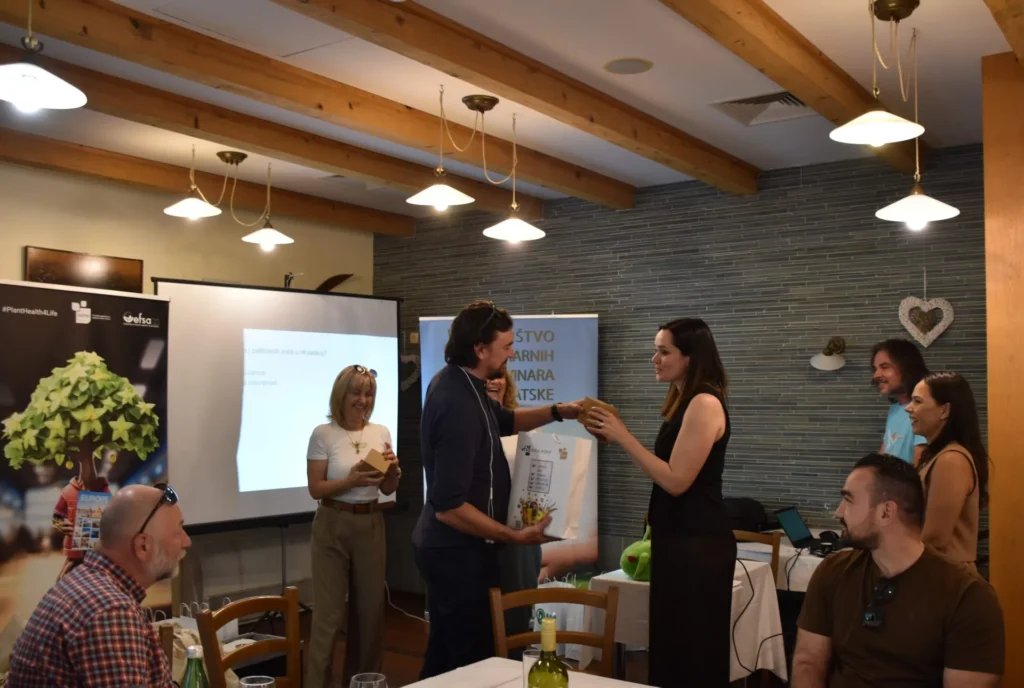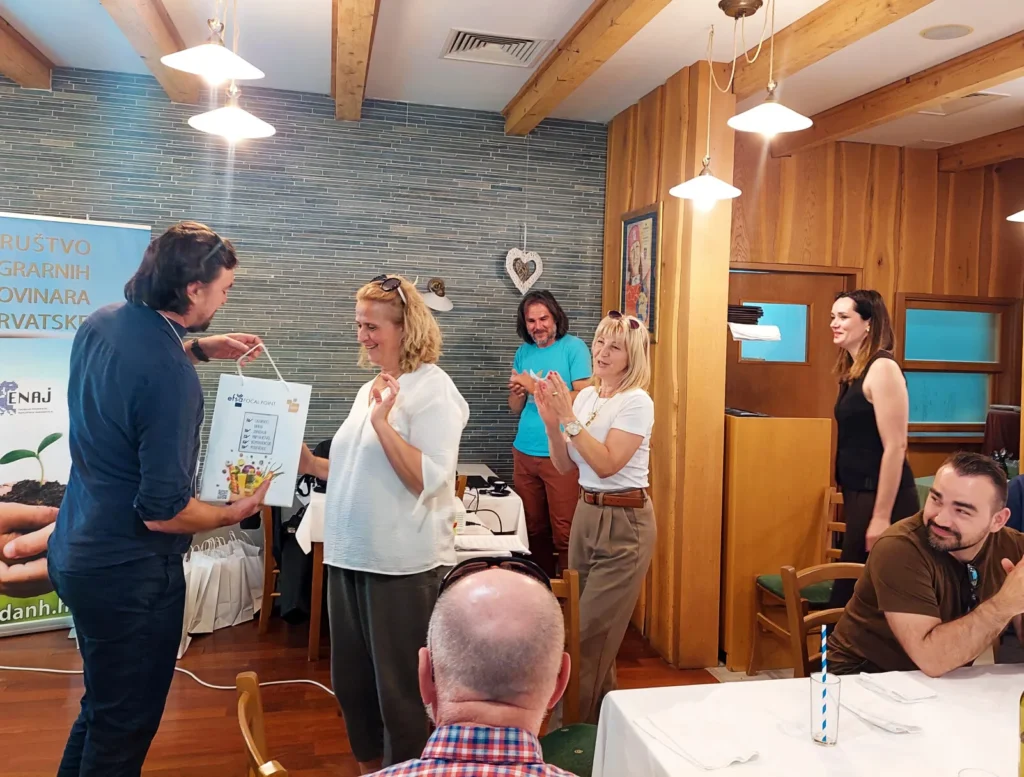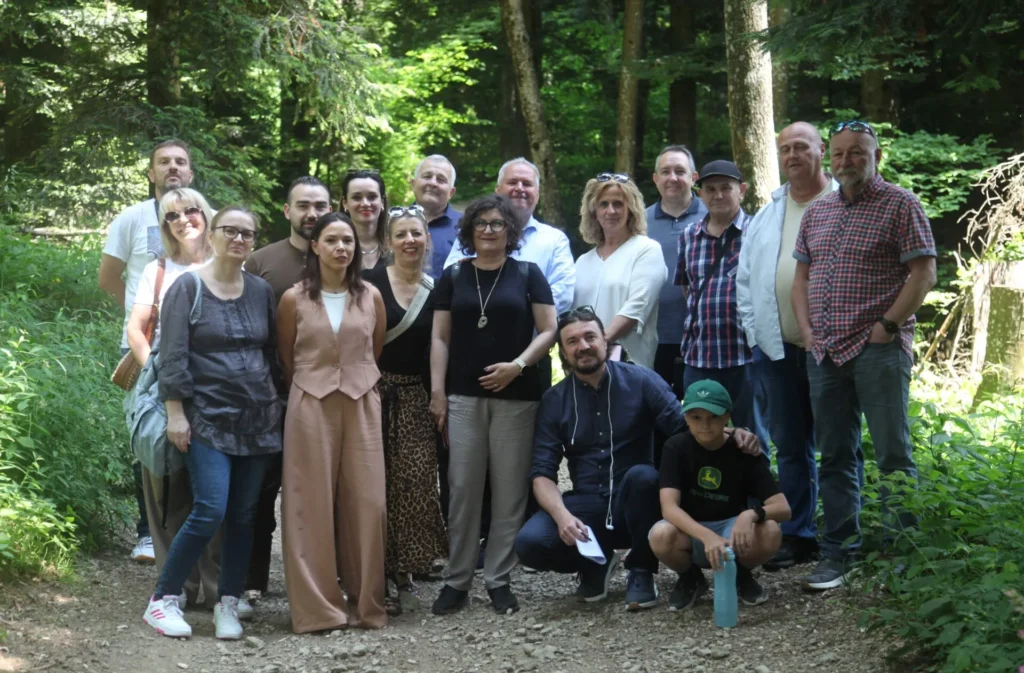Pests found at rest stops near highways in Germany, Slovenia and Austria and which sometimes can travel with us, are referred to as „hitchikers“ in expert terms; One of the most dangerous quarantine pests, known for its jewel-like colour, is the emerald ash bore; The term “deforestation” refers to the clearing of forests for agricultural purposes; Croatia will soon be required to demonstrate its position on deforestation concerning soy, wood, and cattle production during international commodity exchanges… These were some of the answers given during a popular pub-quiz-style session held as part of this year’s Croatian Agricultural Journalists Association (DANH) gathering, where participants competed for fun and engaging prizes.
By providing the correct answers, participants demonstrated their attentiveness to expert presentations on current topics, adding an educational dimension to this year’s gathering in Zagreb, which concluded with a workshop on Sljeme.
Through the slogan “Prevention is better than cure” and an engaging presentation on current invasive species, Dario Ivić from the Centre for Plant Protection at the Croatian Agency for Agriculture and Food (HAPIH) highlighted the importance of preserving plant health and implementing measures to prevent the spread of plant pests and diseases. He also emphasized the role of responsible behaviour by all citizens — a key message of EFSA’s PlantHealth4Life campaign, for which HAPIH serves as the national ambassador.
Zdenko Bogović, President of the Croatian Union of Private Forest Owners Associations (HSUPŠ), and Miljenko Županić, the Union’s Secretary, presented the current state of forests in Croatia and the challenges faced by private forest owners. They also demonstrated sustainable forest management through a practical example in a coniferous forest on Sljeme.
Dragan Solić from HAPIH’s Centre for Livestock Breeding highlighted the connection between agriculture and forestry, as well as the new obligations for Croatian producers introduced by the European deforestation policy. For example, import and export documentation will now require geolocation data on cultivation sites to verify that agricultural products do not originate from areas affected by deforestation.
The traditional annual gathering of agricultural journalists also served as an opportunity to reflect on the recent activities of DANH. Vedran Stapić, President of DANH, announced the upcoming AgroRocks conference, scheduled for October 3rd this year. The event will also feature the “Communicator of the Year” award — a competition through which, for the third year in a row, DANH highlights the importance of effective communication and knowledge transfer in agriculture.A major challenge — but also a remarkable opportunity — lies ahead for DANH in the coming year: the organization of the World Congress of Agricultural Journalists. Preparations for this prestigious event are already underway. Scheduled to take place in Osijek in September 2026, the congress is expected to bring together over 200 agricultural journalists worldwide. It will be the first time Croatia hosts the event since the founding of the International Federation of Agricultural Journalists (IFAJ) in 1954. The program will include excursion trips to Istria and Dalmatia, tailored to participants’ interests. The congress is being organized by DANH and IFAJ, with HAPIH supporting the event as an official partner.
